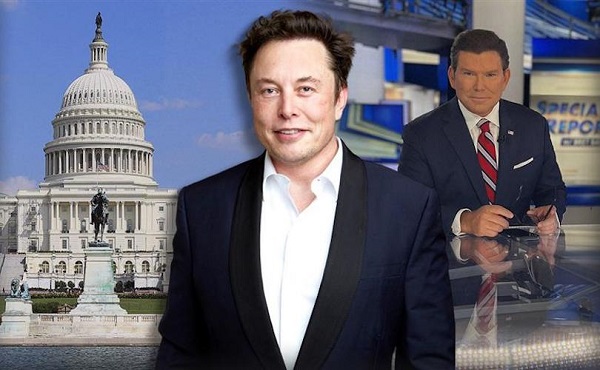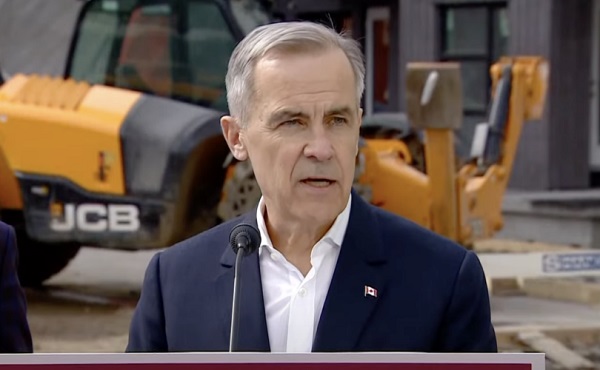National
Euthanasia skyrocketed in Canada last year and is set to get worse under Trudeau

From LifeSiteNews
Canada now leads the world in having an almost uniquely predatory euthanasia regime, and unless there is a change in government before March, that will only get worse
On September 28, journalist Alexander Raikin made a prediction. Raikin has been reporting on Canada’s euthanasia regime for several years, producing some of the best journalism available on the subject and exposing how “MAiD” – the euphemism used by the government and medical professionals to describe death by lethal injection – is administered. “I’m calling it,” he wrote on X. “The reason that the MAiD annual report still isn’t out is because it’ll show that MaiD caused more than 4% of all deaths in Canada, which will mean that MaiD will be around the 4th leading cause of death in Canada. It’s not linear growth: it’s exponential.”
Raikin was right. The “Fourth annual report on Medical Assistance in Dying in Canada 2022” was released this week, and the numbers are staggering. Over 13,200 Canadians died by assisted suicide in 2022. This is a 31.2% increase from 2021 and brings the total number of deaths by lethal injection in Canada since 2016 to 44,958. All of this is unfolding in the midst of a healthcare crisis in which we are incapable of offering comprehensive psychiatric services, suicide prevention, or palliative beds. As we have seen from the conveyer belt of horror stories being reported around the world, many Canadians are opting for state-sanctioned and state-funded suicide simply because they feel they have no other choice.
In many cases, “MAiD” is the only thing they’re eligible for.
The report is packed with dry data that should cause acute alarm. Every province but Manitoba and Yukon “continue to experience a steady year-over-year growth in 2022.” Males accounted for slightly more of the death count – 51.4% against 48.6%. The average age of the person was 77. While cancer remains the most cited medical condition amongst those requesting assisted suicide, “other conditions,” not specified, account for 14.9% and “neurological conditions” account for 12.6%. Of the total, at least 463 of the people who died by assisted suicide “were individuals whose natural deaths were not reasonably foreseeable,” an increase from 223 in 2021. These numbers, it must be pointed out, are only those officially recorded.
Of those who did not have a “reasonably foreseeable death,” most of them had “neurological conditions” (50%) or “other conditions” (37.1%). According to report, “the most commonly cited sources of suffering by individuals requesting MAID were the loss of ability to engage in meaningful activities” at 86.3%. This, says the report, continues “to mirror very similar trends seen in the previous three years (2019-2021), indicating that the nature of suffering that leads a person to request MAID has remained consistent over the past four years.”
The steady rise in the number of Canadians requesting assisted suicide has also led to a growing number of medical professionals opting to perform it. In 2022, the total number of practitioners dispatching patients by lethal injection was 1,837, up 19.1% from 1,542 in 2021. Of these, 95% were doctors and 5% were nurses. 39.5% of assisted suicides were carried out in private homes. The report also noted that the number of requests is rising sharply, and that few are declined:
There were 16,104 written requests for MAID in 2022. This represents an increase of 26.5% over the number of written requests in 2021. Written requests for MAID have grown by an average of 28.2% per year between 2020 and 2022. In 2022, the majority of written requests (13,102 or 81.4%) resulted in the administration of MAID.
Despite these numbers – which will certainly rise sharply if assisted suicide for mental illness, addiction, and other afflictions are approved next March, which seems likely at this point – Trudeau’s health minister Mark Holland noted that: “As Minister of Health, I am proud to present Health Canada’s Fourth Annual Report on Medical Assistance in Dying in Canada (2022).” It is unclear what, specifically, he is proud of. Canada now leads the world in having an almost uniquely predatory euthanasia regime, and unless there is a change in government before March, that will only get worse.
2025 Federal Election
Next federal government should recognize Alberta’s important role in the federation

From the Fraser Institute
By Tegan Hill
With the tariff war continuing and the federal election underway, Canadians should understand what the last federal government seemingly did not—a strong Alberta makes for a stronger Canada.
And yet, current federal policies disproportionately and negatively impact the province. The list includes Bill C-69 (which imposes complex, uncertain and onerous review requirements on major energy projects), Bill C-48 (which bans large oil tankers off British Columbia’s northern coast and limits access to Asian markets), an arbitrary cap on oil and gas emissions, numerous other “net-zero” targets, and so on.
Meanwhile, Albertans contribute significantly more to federal revenues and national programs than they receive back in spending on transfers and programs including the Canada Pension Plan (CPP) because Alberta has relatively high rates of employment, higher average incomes and a younger population.
For instance, since 1976 Alberta’s employment rate (the number of employed people as a share of the population 15 years of age and over) has averaged 67.4 per cent compared to 59.7 per cent in the rest of Canada, and annual market income (including employment and investment income) has exceeded that in the other provinces by $10,918 (on average).
As a result, Alberta’s total net contribution to federal finances (total federal taxes and payments paid by Albertans minus federal money spent or transferred to Albertans) was $244.6 billion from 2007 to 2022—more than five times as much as the net contribution from British Columbians or Ontarians. That’s a massive outsized contribution given Alberta’s population, which is smaller than B.C. and much smaller than Ontario.
Albertans’ net contribution to the CPP is particularly significant. From 1981 to 2022, Alberta workers contributed 14.4 per cent (on average) of total CPP payments paid to retirees in Canada while retirees in the province received only 10.0 per cent of the payments. Albertans made a cumulative net contribution to the CPP (the difference between total CPP contributions made by Albertans and CPP benefits paid to retirees in Alberta) of $53.6 billion over the period—approximately six times greater than the net contribution of B.C., the only other net contributing province to the CPP. Indeed, only two of the nine provinces that participate in the CPP contribute more in payroll taxes to the program than their residents receive back in benefits.
So what would happen if Alberta withdrew from the CPP?
For starters, the basic CPP contribution rate of 9.9 per cent (typically deducted from our paycheques) for Canadians outside Alberta (excluding Quebec) would have to increase for the program to remain sustainable. For a new standalone plan in Alberta, the rate would likely be lower, with estimates ranging from 5.85 per cent to 8.2 per cent. In other words, based on these estimates, if Alberta withdrew from the CPP, Alberta workers could receive the same retirement benefits but at a lower cost (i.e. lower payroll tax) than other Canadians while the payroll tax would have to increase for the rest of the country while the benefits remained the same.
Finally, despite any claims to the contrary, according to Statistics Canada, Alberta’s demographic advantage, which fuels its outsized contribution to the CPP, will only widen in the years ahead. Alberta will likely maintain relatively high employment rates and continue to welcome workers from across Canada and around the world. And considering Alberta recorded the highest average inflation-adjusted economic growth in Canada since 1981, with Albertans’ inflation-adjusted market income exceeding the average of the other provinces every year since 1971, Albertans will likely continue to pay an outsized portion for the CPP. Of course, the idea for Alberta to withdraw from the CPP and create its own provincial plan isn’t new. In 2001, several notable public figures, including Stephen Harper, wrote the famous Alberta “firewall” letter suggesting the province should take control of its future after being marginalized by the federal government.
The next federal government—whoever that may be—should understand Alberta’s crucial role in the federation. For a stronger Canada, especially during uncertain times, Ottawa should support a strong Alberta including its energy industry.
2025 Federal Election
Donald Trump suggests Mark Carney will win Canadian election, touts ‘productive call’ with leader

From LifeSiteNews
‘It was an extremely productive call, we agree on many things, and will be meeting immediately after Canada’s upcoming Election,’ Trump wrote about Carney on Friday.
U.S. President Donald Trump says he had “an extremely productive call” with Prime Minister Mark Carney and implied that the World Economic Forum-linked politician will win Canada’s upcoming federal election.
“I just finished speaking with Prime Minister Mark Carney, of Canada,” Trump wrote on Truth Social Friday. “It was an extremely productive call, we agree on many things, and will be meeting immediately after Canada’s upcoming Election to work on elements of Politics, Business, and all other factors, that will end up being great for both the United States of America and Canada. Thank you for your attention to this matter!”
Reacting to the post, LifeSiteNews editor-in-chief John-Henry Westen wrote on X:

Trump’s comments come just weeks before Canadians head to the polls on April 28 for a federal election. Carney called the snap-election just nine days after taking over for Justin Trudeau as leader of the Liberal Party and prime minister.
Carney, an admitted “globalist” and “elitist,” formerly served as head of the Bank of Canada and Bank of England, and has extensive ties to globalist groups like the World Economic Forum and the United Nations.
Trump’s comments regarding Carney may prove significant as much of the debate in the mainstream media ahead of the election has been about how the prospective leaders will handle tariff threats and trade deals with America.
-

 Business1 day ago
Business1 day agoFeds Spent Roughly $1 Billion To Conduct Survey That Could’ve Been Done For $10,000, Musk Says
-

 2025 Federal Election2 days ago
2025 Federal Election2 days agoChinese Gangs Dominate Canada: Why Will Voters Give Liberals Another Term?
-

 Alberta17 hours ago
Alberta17 hours agoPhoto radar to be restricted to School, Playground, and Construction Zones as Alberta ends photo radar era
-

 Health19 hours ago
Health19 hours agoRFK Jr. Drops Stunning Vaccine Announcement
-

 Alberta11 hours ago
Alberta11 hours agoProvince announces plans for nine new ‘urgent care centres’ – redirecting 200,000 hospital visits
-

 Business8 hours ago
Business8 hours agoElon Musk, DOGE officials reveal ‘astonishing’ government waste, fraud in viral interview
-

 Energy2 days ago
Energy2 days agoEnergy, climate, and economics — A smarter path for Canada
-

 2025 Federal Election2 days ago
2025 Federal Election2 days agoFool Me Once: The Cost of Carney–Trudeau Tax Games






